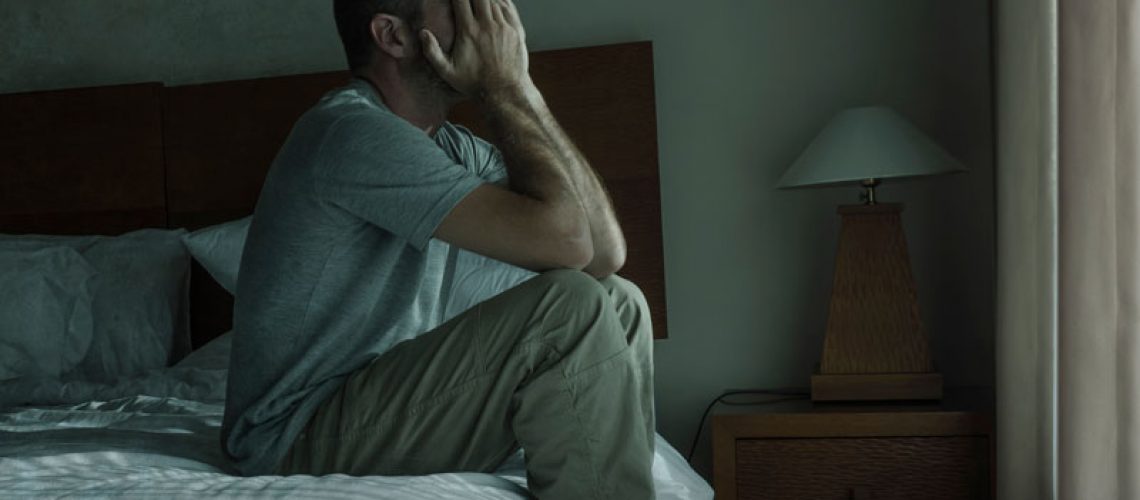Sleep is a vital part of maintaining a healthy lifestyle. However, if you are experiencing the disruptive symptoms of sleep apnea, sleep may be detrimental or even potentially fatal! Fortunately, there are several treatment options available and health professionals that you can visit to receive care.
What Even Is “Sleep Apnea”?
Sleep apnea is a chronic medical condition that involves repeated cessation of breathing and start breathing while you sleep. Sleep apnea occurs in approximately 3% of normal weight individuals but affects over 20% of obese people. Generally, sleep apnea affects men more than women. However, sleep apnea rates may increase sharply in women after menopause.
Sleep apnea can cause short-term sleep deprivation, which can affect mood as well as your safety at work and while driving. It’s also strongly linked to life-threatening chronic conditions like heart disease, high blood pressure, stroke, type 2 diabetes, and depression. If left undiagnosed, sleep apnea may also be linked to heart disease and endocrine disease like diabetes. Hence, it is vitally important to treat sleep apnea. There are several types of sleep apnea, with the most common type being obstructive sleep apnea (OSA).
Usually, a person with sleep apnea is unaware of their breathing problems at night and may only gain knowledge of this issue upon discussions with close relatives or friends. There are three main types of sleep apnea. These include:
- Obstructive sleep apnea: OSA occurs when the airway at the back of the throat becomes physically blocked. That obstruction causes temporary lapses in breath. A noticeable sign of obstructive sleep apnea is chronic snoring, however, not all people that chronic snore may have sleep apnea. A dentist can help you determine whether you have sleep apnea and offer a proper diagnosis.
- Central sleep apnea (CSA): associated with an issue with the brain’s ability to control muscles involved in respiration, leading to slower and shallower breathing. Snoring is not as frequent in CSA as in OSA.
- Mixed Sleep Apnea: A combination of OSA and CSA, also known as complex sleep apnea.
Common symptoms of sleep apnea can occur because of decreased oxygen due to interrupted breathing and poor sleep quality, and can include:
- Disrupted breathing in which a person’s respiration can become labored or even stop for up to a minute at a time
- Excessive daytime sleepiness
- Morning headaches
- Irritability
- Limited attention span or difficulty thinking clearly
- Snoring that is especially loud and involves gasping, choking, or snorting that can awaken a person to briefly
- Morning sore throat or dry mouth
- Frequent need to wake up to urinate
Treatments for obstructive sleep apnea are available. The most common treatment involves using a device that uses continuous positive airway pressure (CPAP) to help maintain open airways during sleep. However, this option may be inconvenient for patients as it can be quite bulky and cumbersome to wear. Another option can include treating the temporomandibular joint (TMJ), which, if misaligned, can cause sleep apnea. Dr. Aaron Vickers and the talented team at the Texas Center for Oral Surgery and Dental Implants in Denton and Flower Mound, TX offer treatment for sleep apnea to improve your sleep and get you the rest you need. Dr Vickers and the team offer jaw adjustments to shift your jaws slightly forward to prevent the throat tissues from interfering with breathing during sleep. Other options can include mouthguards or corrective surgical techniques, including orthognathic surgery.
Get Your Restful Sleep Back!
Are you suffering from symptoms of sleep apnea? Call our doctors, Aaron Vickers, DDS, MD and Tamir D. Anver, DDS, MD, now in our offices in Denton, TX and Flower Mound, TX to look at options for treating sleep apnea and schedule your consultation today!
References
How does a CPAP machine work?, Healthline, https://www.healthline.com/health/what-is-a-cpap-machine#how-it-works
Sleep Apnea, Sleep Foundation, https://www.sleepfoundation.org/sleep-apnea

